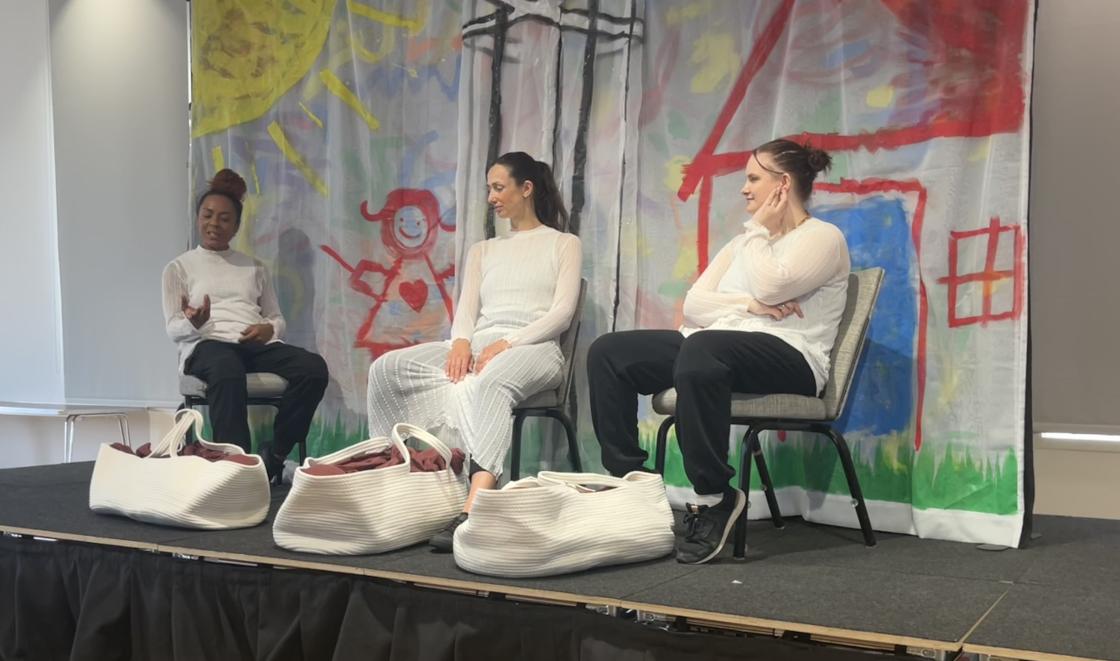Photo: Clean Break Theatre company performing 'Scenes from Lost Mothers'.
What is the health problem?
The first two years of a child’s life are critical for their development. For women with social risk factors, such as those experiencing substance misuse, domestic abuse or learning disabilities, children’s social care services (CSC) may become involved during this time.
While CSC play a crucial role to play in supporting vulnerable families, their involvement can complicate the relationship between parents and their health and social care professionals. A common fear for women is around the risk of their child being placed in state care.
The last decade has seen a rise in CSC involvement for children. Most children in care proceedings in England are under the age of one, with more than half being newborns. In the UK, rates of babies under the age of one being placed in state care have nearly doubled over the last decade. Despite the scale of the problem, evidence about women with CSC involvement during pregnancy and the postnatal period has been limited.
Working collaboratively to address the evidence gap
Our ARC's maternity and perinatal mental health theme, through NIHR research fellow Kaat De Backer's PhD work, collaborated with people with lived experience, the charity Birth Companions, Oxford Population Health and University of Lancaster to address this evidence gap (through the MUMS@RISC study). The researchers explored maternal characteristics, outcomes and experiences of women in contact with CSC in the perinatal period, particularly mothers facing separation from their infant.
Our findings
Using a range of methods and data sources, the researchers:
- Revealed a third of women who died during or in the year after pregnancy were known to CSC – highlighting the urgent need to prioritise and improve mothers’ care
- Highlighted the complex healthcare experiences of women and healthcare professionals
- Made recommendations for a trauma-informed and skilled workforce, improving multi-agency collaboration and for healthcare systems to prioritise building trust
Influencing policy and increasing awareness
This research is influencing policy and informing public and professional awareness.
Research findings have generated significant media interest (e.g. Guardian and BBCR4 Woman's Hour) and have been presented to policymakers at NHS England and the Department of Health and Social Care through policy meetings, to inform future policy.
The researchers have worked with people with lived experience and collaborators to produce a report summarising research findings from the study.
